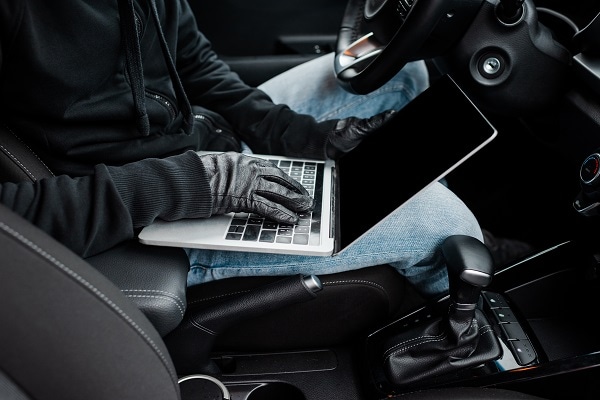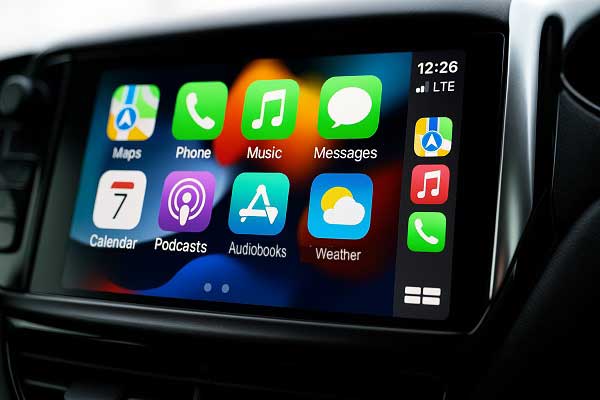Selling or Trading Your Car? Erase the Risks: Top 10 Things to Remove Before Handing Over the Keys
🚗 Before You Sell Your Car, Make Sure You Don't Sell Your Identity Too
When someone trades in their car, they're usually focused on the offer, the paperwork, and moving on to their next vehicle. But almost every week, here at Central Vermont Auto Mart we find sensitive, personal information left behind in glove boxes, center consoles, or information systems. It is a problem our team members have seen for over 30 years, but more and more information is out there, and you don't want to be the victim of some unsavory individual.
Some of this information could let criminals steal your identity, enter your home, stalk your routines, or access your finances. That's no exaggeration. If you forget to clear these 10 things, you may be getting rid of you old ride but giving away more than you really wanted to.
📁 1. Remove Glove Box Paperwork - It's a Goldmine for Identity Thieves
This is the number one cause of concern we see, and it is an age-old concern. We still find original purchase packets or envelopes, years after someone bought their vehicle, still stuffed in the glove box. These documents often include:
- Purchase agreements with your address, driver's license numbers, Social Security numbers, and date of birth
- Credit applications with everything a fraudster needs to open accounts in your name
- Loan agreements with information that includes monthly payments and interest rates
If a criminal finds this? They could take out a loan, rent an apartment, or commit crimes under your identity-before you even know it.
 What to do: Search every document. If it has your name, numbers, or signature-remove it and shred it.
What to do: Search every document. If it has your name, numbers, or signature-remove it and shred it.📞 2. Delete Phone Contacts & Call Logs - Or Risk a Personal Breach
Bluetooth pairing in some models actually saves the following items in the vehicle's infotainment system and updates it each time the phone connects:
- Call logs
- Contact names and numbers
- Even message previews in some models
What could go wrong? Someone posing as you could call your employer, text your family, or spoof your identity.

What to do: Unpair your phone and delete your profile from the vehicle's infotainment system.

🗺️ 3. Clear GPS History — Home Invaders Love This One
Navigation systems often save:
- Your home address
- Favorite stores
- Children's schools or your workplace
If your vehicle is stolen or sold to someone sketchy, you've just handed over a map to your private life.
 What to do: Open the navigation settings and delete saved addresses, recent destinations, and home/work shortcuts.
What to do: Open the navigation settings and delete saved addresses, recent destinations, and home/work shortcuts.🏠 4. Clear Garage Door Programming & Remove Remotes
Some cars have programmable remotes tied to your garage. Physical clickers are often forgotten in the visor.
In the wrong hands? Instant access to your home. If your GPS also has your home address… you've practically invited them in.
 What to do: Clear memory in your HomeLink or similar system. Remove all remotes.
What to do: Clear memory in your HomeLink or similar system. Remove all remotes.📷 5. Wipe Dash Cam or Cabin Camera Recordings
Dash cams and cabin cams may record:
- Your driving habits
- Conversations
- Where you live and work
Why it matters: Some systems auto-upload data to cloud accounts-or the SD card can be accessed with your footage still on it.

What to do: Remove SD cards and reset camera systems to factory settings. Simply erasing the SD card will not totally delete the data. If you want to leave the SD card for the next owner, be sure to reformat the card, this will, if properly done will ensure that no one can access your video or other files that were stored on the card.
💳 6. Remove Toll Transponders & Parking Tags - Or You'll Keep Paying
Leaving devices like E-ZPass, Fast Lane, or Radio Frequency Identification (RFID) tags in your vehicle means you may get billed long after it's ben traded or sold. You don't want to get stuck paying for someone else's tolls.
Some transponders and tags auto-reload from your bank account or credit card attached to the account.

What to do: Remove devices and log in to suspend, cancel, or update vehicle info.
🎵 7. Log Out of Apps & Subscriptions
Most cars let you log into:
- Spotify
- Apple CarPlay / Android Auto / Google Account
- WiFi Hotspot services
- SiriusXM or OnStar
If you don't log out? Someone could stream on your account, make service requests, or access cloud data.
 What to do: Manually log out of all apps and perform a full infotainment system reset.
What to do: Manually log out of all apps and perform a full infotainment system reset.
🧾 8. Clear Service Records & Owner's Manual Notes
We've found handwritten notes and dealer repair records / invoices tucked inside the owner's manuals. While Vermont law requires a dealership to disclose the previous owner to a prospective customer, should they ask for it, you probably don't want the customer calling you to discuss why you had certain repairs done or other questions about the history of the vehicle you thought you had gotten rid of. Again, you cannot stop the customer for asking for the previous owner's name, but if your preference is not to have to talk about your old vehicle, this step will help eliminate the customer calling you, based on information they easily found in your old car.
If you discover the service records add value to what you will get for your vehicle and the buyer or dealership would like them, you should consider reviewing the invoices and redacting any information such as home address, cell phone numbers or other information you would prefer not to disclose with a good black magic marker.
This information, combined with a vehicle history report, can be used to spoof your identity. We have heard of an instance where a thief called a new car dealership's service department to talk about certain repairs, they then ask if they would send them copies of a couple repairs, they don't have for a lemon law case. In addition, they asked if the service department could get the office to send them a copy of the buyer's order and original registration from when they purchased it when they send over the "missing" service invoices, hoping to obtain personal information they can use for identity theft.

What to do: Go through the entire glove box and manual. Remove or redact personal information from any service documents and check for notes or documents with personal data.
👤 9. Erase Digital Driver Profiles & Key Fob Memory
Driver profiles often store seat, mirror, and climate preferences, and there is no problem with this information remaining in the vehicle, but some manufacturers store voice recognition logs that can be used to mimic your speech with AI tools that are easily available.
Some cars also connect your profile to your personal account or mobile app.

What to do: Delete your user profile and perform a factory reset on all electronic systems if possible. Consult your owner's manual for details.
🧺 10. Final Sweep: Check Hidden Compartments for Personal Items
Under-seat bins, trunk cubbies, spare tire compartments and seatback pockets often hide old items like:
- Medications
- Child information
- Work ID badges
- Old registration cards
Perhaps one forgotten envelope that could contain enough to open a credit card in your name?

What to do: Use a flashlight. Search every pocket and crevice-twice.
🧠 Thinking Ahead: Before You Hand Over the Keys, Lock Down Your Data
Your car holds more than memories. It holds data-and data is currency to scammers. Every week, identity theft affects thousands of people who never saw it coming. Don't let a simple oversight put your finances, credit, or safety at risk.
Want a printable version of these 10 steps? - Download Our 10 Step Checklist
Your next car journey should start with peace of mind-not panic over a stolen identity. Use this checklist, take 15 minutes, and protect yourself from the risks that most people never even consider.
Ready to sell? Let's do it safely-together. Sell Your Car for Cash Today at Central Vermont Auto Mart in Montpelier.

🏠 Sell to a Local Dealer Who Cares
At Central Vermont Auto Mart in Montpelier:
- You deal with real people who care about your safety
- We buy cars for cash-fast, secure, and easy
- We respect your privacy
Unlike some online car sites, we're right here if you ever have questions or concerns.
Want to learn more about vehicle ownership and long-term care?
 Published June 02, 2025 | Updated February 16, 2025
Published June 02, 2025 | Updated February 16, 2025


